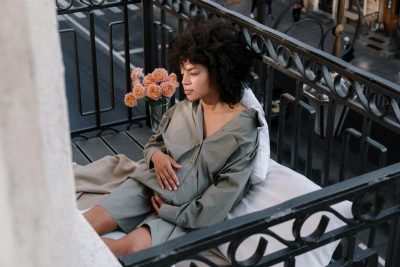The Domestic Diva: When Did They Stop Seeing Me?

The Invisible Work of Motherhood
It hit me one ordinary morning, a sudden, sharp realization of my own invisibility.
I was on the phone, handling something important, when one of the kids walked right into the room, looked past me, and asked, with zero awareness of my current conversation, “Can we go to the store?”
My immediate, frustrated internal thought was: Can’t you see I’m busy?
Apparently not.
No one seems to notice when I’m sweeping, when the meal magically appears on the table, or even if I were standing on my head in the corner. I had officially become The Invisible Mom.
A Pair of Hands, A Talking Clock, an Uber
Some days, my value is reduced to a pair of hands: “Can you fix this?” “Can you tie this?” “Can you open this?”
Other days, I’m not even that complex. I’m just a series of services, a utility in motion. I’m the talking clock (“Mum, what time is it?”), the walking GPS (“What channel is Disney on?”), or the Uber driver (“We need to leave by 5:30”).
I once had hands that held books, eyes that studied history, and a mind that graduated summa cum laude. Now, those parts of me feel buried under layers of peanut butter smudges, mismatched socks, and an endless cycle of laundry.
I was going… and now, she’s gone. I was lost in the very life I chose.
The Cathedrals We Build When No One Sees
This feeling of being forgotten peaked during a celebration for a friend, Joke, who had just returned from a glamorous trip to England. She was absolutely glowing, recounting tales of hotels, sights, and freedom. I looked around the room, felt utterly frumpy, and realized how much I missed that external validation.
But then, Joke did something unexpected. She walked straight up to me and handed me a beautifully wrapped book.
The inscription read: “To Ovie, with admiration for the greatness of what you are building when no one sees.”
The book was about the great cathedrals of Europe. I devoured it, and through its pages, I discovered four life-changing truths that redefined my invisible work:
-
No one knows the names of the original builders of those magnificent cathedrals.
-
These builders gave their lives to something they would never see completed.
-
They made sacrifices quietly, without credit or expectation of applause.
-
Their faith sustained them, rooted in the knowledge that God sees everything.
One story stopped me cold: A man saw a stonemason meticulously carving a tiny, detailed bird on the underside of a hidden beam—a place that would be completely obscured by the roof.
“Why are you doing that?” the observer asked. “No one will ever see it.”
The worker simply replied: “Because God sees.”
The Whisper That Healed Everything
When I closed the book, I finally heard it. Not the frustrated internal voice of the Invisible Mom, but a quiet, profound whisper in my heart:
“I see you, Ovie,. I see the sacrifices you make every day. The sticky cupcakes, the quiet bedtime stories, the tiny acts of love and service. They matter.”
This invisibility, I realized, wasn’t erasing me; it was reshaping me. It was curing me of pride and shifting my perspective away from superficial titles. I now see myself as a cathedral builder.
I show up each day to build something that will fundamentally outlive me. My name may not be on the structure, but my fingerprints—my values, my love, my presence—will be everywhere.
Honestly, when my daughter eventually brings a friend home from college, I don’t want her to brag about my perfectly ironed linens or my old job title. I just want her to feel such a deep sense of belonging and warmth that she says, with absolute certainty: “You’re gonna love it here.”
Mothers are the quiet architects of the future. We may never see the final structure or receive the applause, but what we are building is enduring. The world will marvel not just at the legacy, but at the beauty we added through the quiet, often invisible, work of love.
To every invisible mom out there, remember: Great job. God sees.
Inspired by a post from Mikey’s Funnies
Recommended:
Domestic Diva: Identity Crisis
Ovie Farraday is a wife and mother of five (including 2 teenagers and a pre-teen) living in a sub-Saharan West African suburb. She is married to an Architect and entrepreneur. Ovie Farraday is a pen-name.
Similar stories: ‘We don Close’ and Sought by Love
